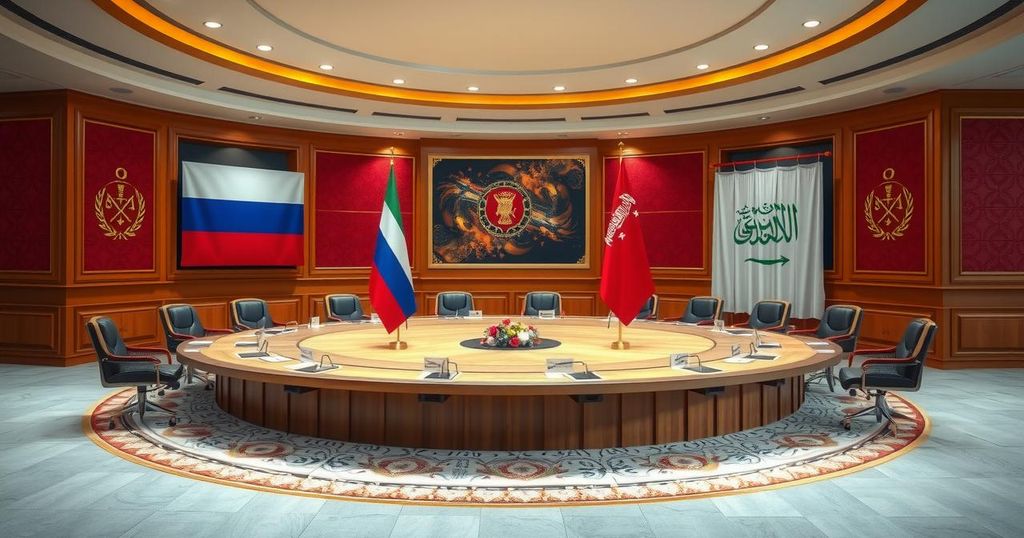Russia’s Diplomatic Insights: Implications for Ukraine and Global Crises

Dmitry Polyanskiy, Russia’s UN representative, criticized the Biden administration for escalating the Ukraine conflict, contrasting it with Trump’s more pragmatic approach. He praised Saudi Arabia’s emerging diplomatic role and emphasized the necessity of a two-state solution in Palestinian matters. Polyanskiy’s remarks addressed the crises in Sudan and Syria, reaffirming Russia’s commitment to regional stability and friendship with affected nations.
In a recent interview with the Arab News program “Frankly Speaking,” Dmitry Polyanskiy, Russia’s First Deputy Permanent Representative to the UN, expressed that the Biden administration has exacerbated the conflict in Ukraine rather than contributing to its resolution. He emphasized that the previous U.S. administration’s policies provoked Russia, leading to severe consequences for Ukraine. According to Polyanskiy, the actions taken by the Biden administration were aimed at inflicting a strategic defeat on Russia, thereby escalating the conflict.
Polyanskiy contrasted the current U.S. approach with that of former President Trump, describing Trump’s administration as adopting a more pragmatic perspective that acknowledged the realities on the ground in Ukraine. He indicated that Trump and his team offered realistic proposals aimed at ceasing hostilities, which would primarily benefit Ukraine.
During talks in Saudi Arabia involving U.S. and Russian officials, a draft agreement emerged that included a ceasefire over the Black Sea in exchange for reduced sanctions on Russia. Polyanskiy welcomed Saudi Arabia’s proactive role in these discussions, noting that the kingdom was establishing itself as a significant center for international diplomacy, particularly regarding the Ukraine conflict.
Polyanskiy acknowledged the complexities surrounding other global issues, including crises in Gaza, Sudan, and Syria. He reiterated Russia’s commitment to a two-state solution in the Palestinian conflict and emphasized the importance of unified action from Arab countries in these matters. He expressed understanding regarding the limitations of Russia’s influence compared to that of the United States in pressing Israel towards peace.
Regarding the conflict in Sudan, Polyanskiy supported the Sudanese authorities and expressed optimism about the military situation improving after recent developments. He pointed out that Russia had vetoed a UN resolution calling for a ceasefire due to concerns over equating the Sudanese government with opposition forces, indicating a preference for maintaining government authority.
With respect to Syria, Polyanskiy discussed Russia’s relationship with the Assad regime, underscoring the need for an inclusive authority to represent all Syrians. He expressed Russia’s long-standing friendship with Syria and its intention to support the nation during its transitional phase, highlighting a collective desire for sustainable development and stability in the region.
Dmitry Polyanskiy’s insights reveal the ongoing complexities of international diplomacy surrounding the Ukraine conflict, highlighting the contrasting approaches of U.S. administrations and the potential role of Saudi Arabia as a diplomatic hub. His statements on the crises in Gaza, Sudan, and Syria further illustrate Russia’s perspectives on these pressing global issues, advocating for cooperative engagement and realistic solutions. As the global landscape shifts, the significance of united regional action and effective mediation becomes increasingly pertinent in addressing these multifaceted challenges.
Original Source: www.arabnews.jp








